
剧情简介
一名年过中年的消防员在多年后意外找到失散多年的儿子,却发现这名「儿子」背后拥有天大秘密,随着如影随形的神秘血腥事件,却也一步步揭晓儿子真正身分。
导演简介
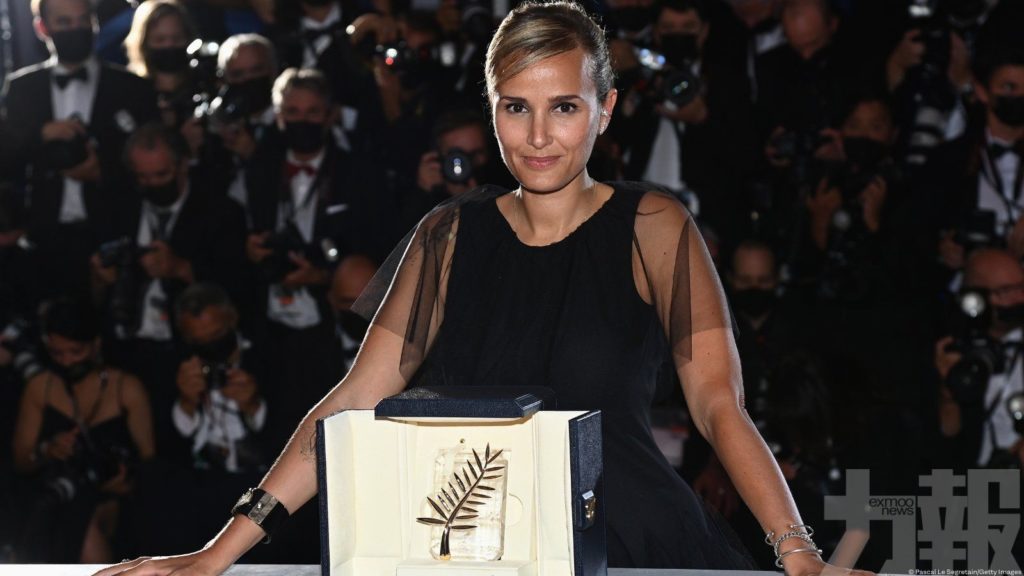
朱利亚·迪库诺(Julia Ducournau),法国电影导演和编剧,她的电影作品主要以身体恐怖风格闻名。 2021年,她以她的第2部长片《钛》于第74届戛纳影展正式竞赛单元中获得最高荣誉金棕榈奖,成为第二位获得该奖的女性导演。
影评正文
口耳相传 —— 这是一种游戏。玩家“排成一条线或一个圈,第一个玩家想出一则信息,接着轻声的在第二个人耳边耳语;第二个玩家向第三个玩家重复同样的信息,然后接连传下去。”随着信息的传递,错误必将累积。
《钛》(Titane)是朱利亚·迪库诺(Julia Ducournau)继《生吃》(Raw)后的非凡续作,同时也是她自己的“口耳相传”游戏。她在剧本中的每一组镜头连接至下一组时,层层堆叠、越发疯狂,最后恰好接上下一个场景。
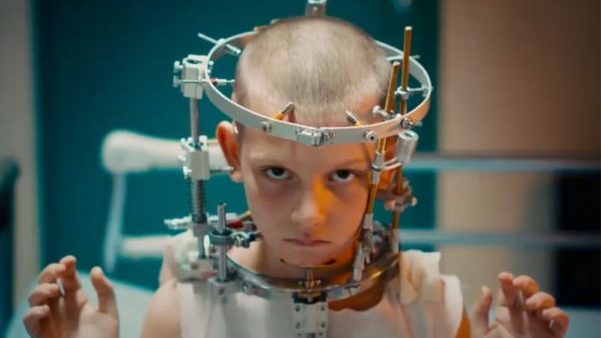
电影一开始,镜头专注于艾莉克西娅(Alexia,阿加莎·罗塞勒(Agathe Rousselle)飾),一位年轻女子,因为小时候的一场车祸后的手术,她自豪的在头的一侧戴上一块钛金屬板。
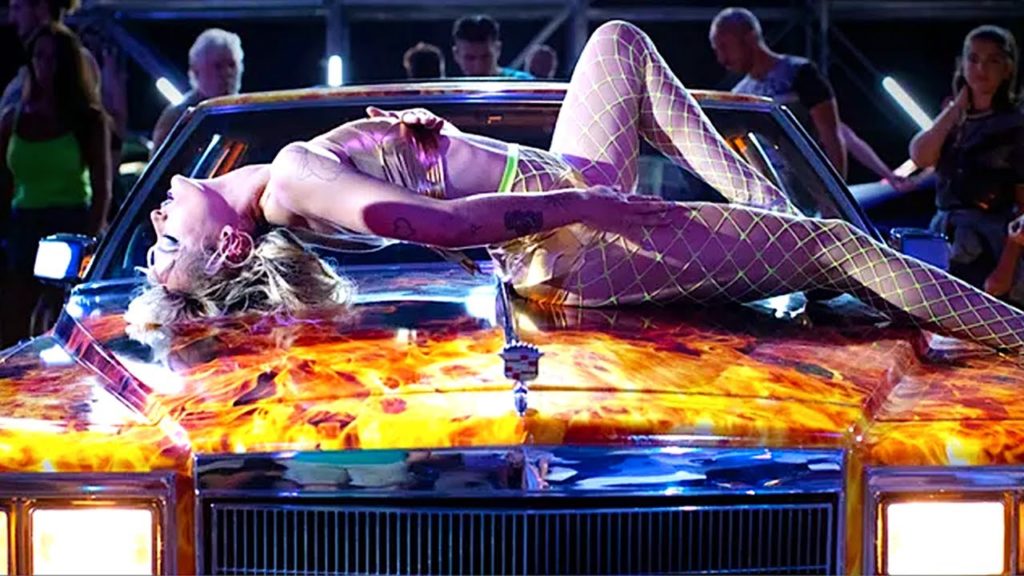
在离开虐待她的家庭后,成为一位车展的舞者;随着她在车上的扭动与摩擦、挑逗地穿着名家的备用衣物,呈现了一场完全由男性视角出发的场景(虽然迪库诺在影片后段颠覆了这段情节)。对艾莉克西娅来说,这块钛金屬版的副作用不止于通过机场安检门时的哔哔声;更让我们难以置信地见证了她对汽车产生的的性吸引力,并走向一场堪比恐怖电影的凶残狂欢。
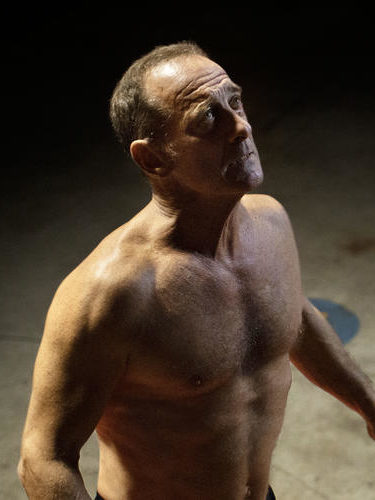
同时,在电影后半带出了其他角色:文森特(Vincent),一位精神错乱的消防队长(身材壮硕的文森特·林顿(Vincent Lindon)以粗暴的力量饰演此角色),不但失去了儿子,自身还有药瘾问题。
艾莉克西娅和文森特最终是如何相遇的解释是缺失的,不难发现的是,让这部电影的结构不至崩塌的关键——并不是角色或情节,而是气氛、价值震撼和风格。迪库诺知道如何在每个场景下显得铿锵有力:从前述的单一镜头至艾莉克西娅走向车头灯,再到她淋浴浸湿身体这一系列场景。性欲、柯南柏格式的肉体恐惧(David Cronenberg,加拿大导演,以拍摄肉体(body horror)恐惧电影闻名)和怪诞的畸变,在每一次都结合且丰富了畸形的美。
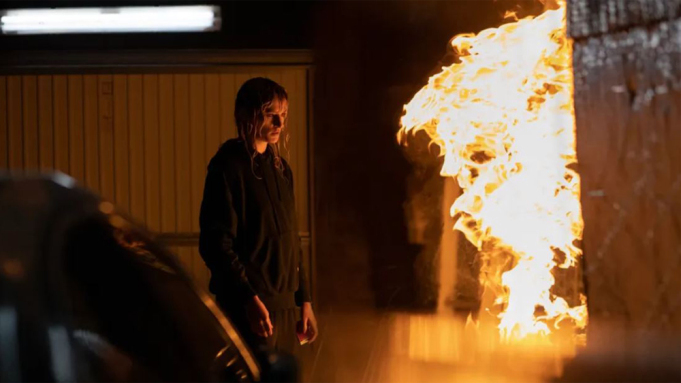
喷出黑色机油、闻到金属气味,这部电影是成功在观众心中留下印象的一部奇幻的恐怖盛会,然而迪库诺却试图越过金属本质,最终一事无成。随着震撼与敬畏消退,很难在角色之间找到任何能够继续坚持的东西,或是在疯狂中找到有意义的主线剧情。
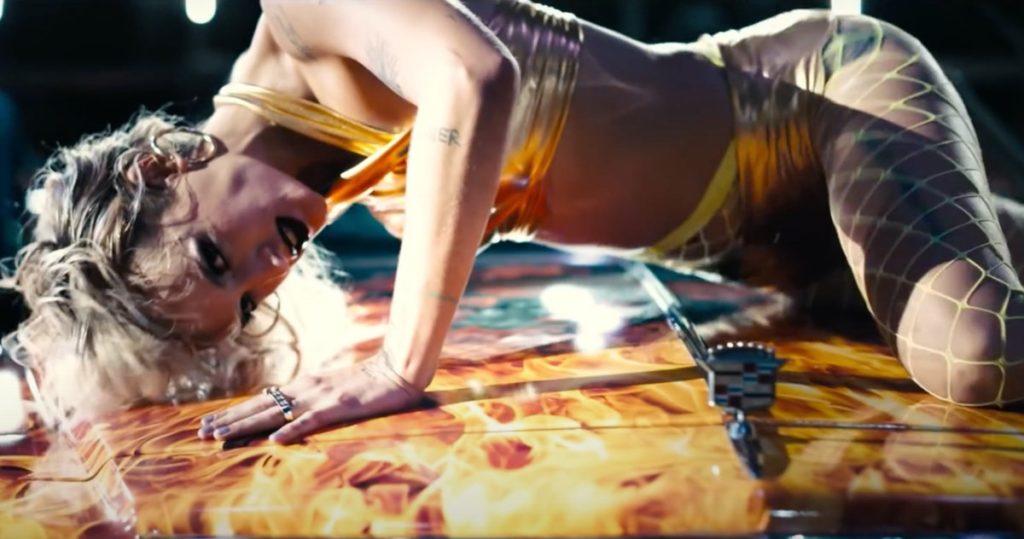
尽管本片缺乏深度,但若仔细观看,就很容易猜到艾莉克西娅和文森特之间的连结,因为他们都是受过创伤的角色,而现在,他们可能在彼此身上找到某种形式上的安慰。然而,迪库诺在这种新颖主题上的努力,不禁让我产生了几个疑问,比如:谁才更加的疯狂?是流动性别、热爱汽车的连环杀手金属女孩?还是身心灵都对真相视而不见、拥有类固醇瘾的消防队长呢?或者其实是朱利亚·迪库诺,这部电影的中心人物、精神错乱的首领:在拍摄了两部关于人类病态潜力的电影之后,用她的艺术来处理心理上的、治疗级别的问题,如强奸、虐待和身体畸形。

这位金棕榈奖的赢家,凭着《钛》凯旋而归,但困难的是她接下来会走向何处?她不太可能再以前两部电影的方式加倍努力;她也不可能再加深电影的强度。所以我们只能希望她在未来能够成为一位运用她的技术而事半功倍的导演。
影评人简介

贝尔纳多·莱特(Bernardo Leyte),常驻巴黎的电影制作人。 他在西班牙、德国和英国长大,毕业于伦敦电影学院,目前担任导演。 他是一位充满热情的影迷,他所观看的电影囊括各种类型,从他的偶像斯坦利·库布里克(Stanley Kubrick)和安德烈·塔可夫斯基(Andrei Tarkovsky)的電影,到超级英雄、恐怖片、动漫等。
英文原文
Telephone: this is the game where players “form a line or a circle and the first player comes up with a message and whispers it to the ear of the second person in the line. The second player repeats the message to the third player, and so on.” As the message is passed on, the errors typically accumulate.
Titane is Julia Ducournau’s spectacular follow up to Raw, and it is her own game of Telephone, as each sequence in the script leads to a newer, more demented, and just barely cohesive next scene.
In essence, the film follows the exploits of Alexia, a young woman who was in a car accident as a child and, following a surgery, now proudly wears a titanium plate on the side of her head. Leaving her- possibly abusive- family behind, she works as a dancer at auto shows, as she twists and rubs her body against the cars, provocatively posing with spare clothing in a virtuoso one take scene that fully embraces the male gaze (though Ducournau has plans to subvert it later in the film). For Alexia, the side effects of having metal implanted in her head are not limited to beeping at airports; we witness with disbelief as she experiences sexual attraction to cars and goes on murderous sprees worthy of a slasher movie. Meanwhile, in the second half of the film awaits another character, a deranged fire chief (Vincent, played with raw force by a musclebound Vincent Lindon) who lost his son and has an addiction of his own.
Without revealing how Alexia and Vincent ultimately come together, it is not hard to realize that the connective tissue keeping this film from falling apart does not come through character or plot, but rather atmosphere, shock value and style. Ducournau knows how to pack a punch in every single scene, from the aforementioned single take to a shot of Alexia walking towards a car’s headlights, dripping wet from the shower. Sexual desire, Cronenbergian body horror and grotesque transformations coalesce and flourish with deformed beauty at every turn.
The film, a fantasy horror extravaganza, gushing with black motor oil and smelling of hot metal, succeeds at leaving a mark, but Ducournau’s attempts to go beyond the metallic surface come to nothing. As the game of shock and awe wears thin, it is hard to find anything in the characters to hold on to, or a thematic through-line that makes sense among the madness.
Despite the lack of depth, If one looks hard enough, it is possible to guess a thematic arch for Alexia and Vincent, as they are both characters who have suffered trauma in the past and may now find some form of comfort in each other. However, this new genre effort in Ducournau’s filmography left me wondering different questions, such as: who is more crazy? Is it the gender-fluid, car-loving serial killer metal girl? The steroid-junkie fire-chief who is physically and emotionally blind to the truth? Or is it Julia Ducournau, the unhinged ringmistress at the center of it all who, after two films dealing with the sick potential of the human body, uses her art to deal with psychological, therapy-grade issues such as rape, abuse and body dysmorphia?
With Titane, the Palme d’or winner gets to walk away triumphantly, but it is hard to see where she will go from here: it is impossible to double down on the trajectory plotted by her last two films. She cannot increase the intensity, so one can only hope that in the future she will mature into a director who uses her skills to do more with less.
-by Bernardo Leyte

